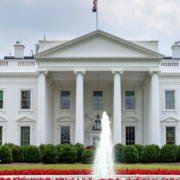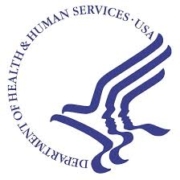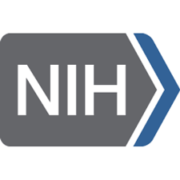The following is the latest health policy news from the federal government as of 2:30 p.m. on Thursday, August 19. Some of the language used below is taken directly from government documents.
 The White House
The White House
- The White House has issued a fact sheet highlighting the latest administration actions to address COVID-19. Those actions include its plan to begin offering COVID-19 booster vaccines starting the week of September 20; a soon-to-be-published regulation requiring workers in long-term-care facilities to be vaccinated (described below); a directive to the Secretary of Education to use all available tools to ensure that governors and other officials are providing a safe return to in-person learning for children; and the extension of federal reimbursement for 100 percent of selected COVID-19 response costs incurred by states, including COVID-19-related National Guard deployments, through the end of the calendar year.
- The White House has posted a transcript of the August 18 press briefing given by its COVID-19 response team and public health officials. Find the slides presented during the press briefing here.
Provider Relief Fund
- HHS has updated the reporting requirements and auditing and data pages on its Provider Relief Fund web page.
Centers for Medicare & Medicaid Services
COVID-19
- CMS and the CDC are developing an emergency regulation requiring staff vaccinations within the nation’s more than 15,000 Medicare- and Medicaid-participating nursing homes. In announcing this new policy, CMS notes that “About 62% of nursing home staff are currently vaccinated as of August 8 nationally, and vaccination among staff at the state level ranges from a high of 88% to a low of 44%. The emergence of the Delta variant in the United States has driven a rise in cases among nursing home residents from a low of 319 cases on June 27, to 2,696 cases on August 8, with many of the recent outbreaks occurring in facilities located in areas of the United States with the lowest staff vaccination rates.” Learn more from the CMS announcement.
- CMS has published a special edition of its online newsletter, MLN Connects, that presents information about codes and payments for the additional doses of COVID-19 vaccinations authorized by the FDA last week for selected at-risk individuals. The American Medical Association has published similar information.
- CMS has invited eligible Medicaid managed care organizations to participate in a data-sharing pilot project to facilitate increased care coordination for individuals dually eligible for Medicare and Medicaid during the COVID-19 emergency. This pilot project is open to a maximum of 20 Medicaid managed care organizations that enroll dually eligible beneficiaries. The application deadline is August 30. Learn more about the program here.
Health Policy News
- The Most Favored Nation Model introduced by CMS’s Center for Medicare and Medicaid Innovation (CMMI) sought to test a new way to lower prescription drug costs by paying no more for high-cost Medicare Part B drugs and biologicals than the lowest price that drug manufacturers receive in other, similar countries. In the face of legal challenges that prevented implementation of the program as proposed, CMMI has announced that it will not implement the program without additional rulemaking. Go here to learn more about the program and its change in status.
- CMS has published the latest edition of its MLN Connects, its online newsletter. This week’s edition includes features on updated web-based training on Medicare fraud and abuse prevention, detection, and reporting; webinars on Medicare ground ambulance data collection; updated instructional resources for inpatient rehabilitation facility and long-term-care hospital Quality Reporting Program documents; and more.
 Department of Health and Human Services
Department of Health and Human Services
COVID-19
- Officials from HHS, the CDC, the FDA, the NIH, the White House, and the Surgeon General issued a joint statement outlining the federal plan to pursue delivering COVID-19 booster vaccines beginning in the fall.
Health Policy News
- A study by HHS’s Office of the Inspector General has concluded that Medicare pays three times as much for the capital costs of new hospitals during their first two years of existence – an average of $1.3 million a year more – than it pays established hospitals for their capital costs. The OIG recommended that CMS reevaluate this policy. CMS concurred with the OIG’s recommendation. Learn more from the OIG study.
- HHS has awarded $19 million in grants to 36 recipients to strengthen telehealth services in rural and underserved communities and expand telehealth innovation and quality nation-wide. Learn more about the specific grant recipients and the purposes for which they received awards in this HHS announcement.
Centers for Disease Control and Prevention
COVID-19
- The CDC has updated its guidance on COVID-19 vaccines for people with compromised immune systems to reflect its recent recommendation that certain people with compromised immune systems receive an additional vaccine.
- The CDC has published research on the sustained effectiveness of the Pfizer and Moderna vaccines against COVID-19-associated hospitalizations among adults from March through July. Find the research here.
- The CDC has updated its guidance on testing strategies for COVID-19.
- The CDC has updated its information about reported adverse events suffered by individuals after receiving COVID-19 vaccines.
- The CDC has updated its information about the possibility of contracting COVID-19 even after being vaccinated against the virus.
- The CDC has updated information about its own two tests for COVID-19, including with information about how to obtain materials for such tests and a recommendation that users move away from its COVID-19-only test in favor of a test that examines specimens for both COVID-19 and the flu. Learn more here.
- The CDC has released new data on the safety of the COVID-19 vaccines in pregnant people and is now recommending all people 12 years of age and older get vaccinated against COVID-19. Go here to read its announcement and find links to supporting data. The agency also has updated its vaccine information for people who are pregnant or breastfeeding.
- The CDC has updated its information about COVID-19 vaccines for children and teenagers.
- The CDC announced that it will launch a new center to advance the use of forecasting and outbreak analytics in public health decision-making. Learn more from the CDC announcement.
 National Institutes of Health
National Institutes of Health
- An NIH clinical trial has concluded that COVID-19 convalescent plasma does not prevent disease progression in a high-risk group of outpatients with COVID-19 when administered within the first week of their symptoms.
- Scientists at the NIH have developed a new method to detect COVID-19 that bypasses extraction of the virus’s genetic RNA material, simplifying sample purification and potentially reducing test time and cost. Learn more about the new test from this NIH announcement.
Medicaid and CHIP Payment and Access Commission (MACPAC)
- MACPAC has published “Access in Brief: Behavioral Health Services for Youth in Foster Care,” a new report that presents analyses of the experience of adolescents age 12–17 who reported staying overnight in foster care in the past 12 months using data from the National Survey on Drug Use and Health from 2015 to 2019.
Government Accountability Office (GAO)
- The GAO was asked to examine skilled nursing facility staffing and rates of critical incidents with an eye toward the degree to which staffing affects critical incidents and Medicare expenditures. Learn what it found, and what it recommends, in the new GAO report Additional Reporting on Key Staffing Information and Stronger Payment Incentives Needed for Skilled Nursing Facilities.
Stakeholder Events
Monday, August 23 – CMS
Advisory Panel on Hospital Outpatient Payment
Monday, August 23 from 9:30 a.m. to 5:00 p.m. (eastern)
CMS’s Advisory Panel on Hospital Outpatient Payment will meet virtually to advise the agency about the clinical integrity of the Ambulatory Payment Classification groups and their associated weights and about supervision of hospital outpatient therapeutic services. The advice provided by the panel will be considered as CMS prepares its annual updates for the hospital outpatient prospective payment system.
The public may participate in this meeting by webinar or teleconference. Teleconference dial-in and webinar information will appear on the final meeting agenda, which will be posted here when available.

 The White House
The White House Department of Health and Human Services
Department of Health and Human Services National Institutes of Health
National Institutes of Health